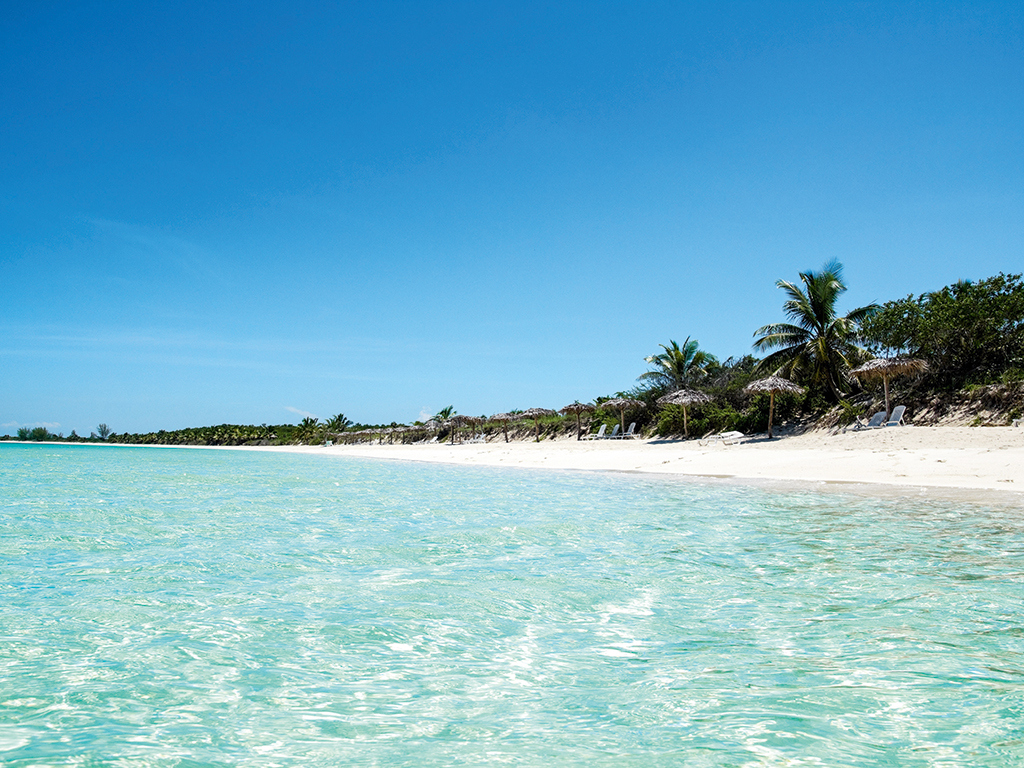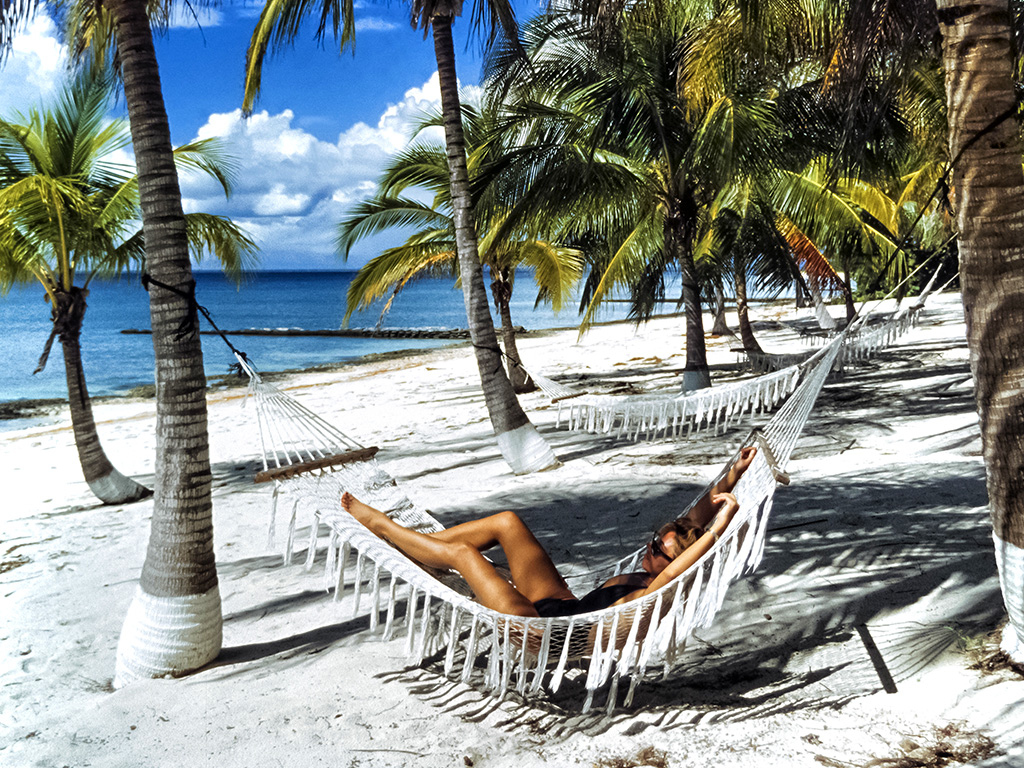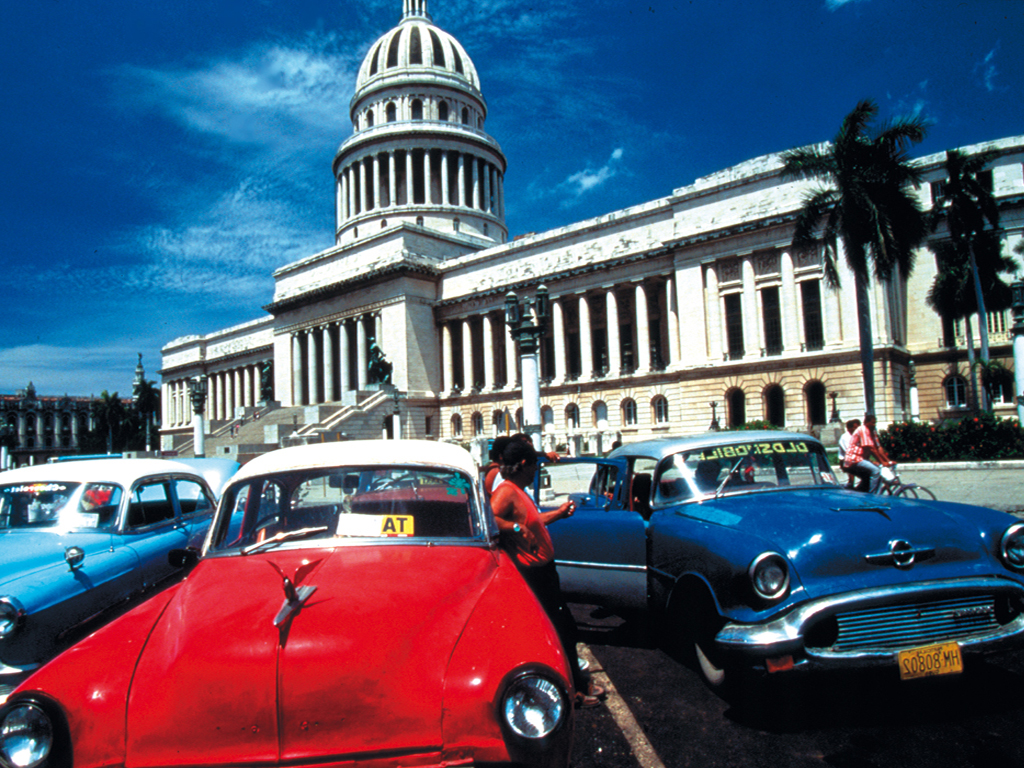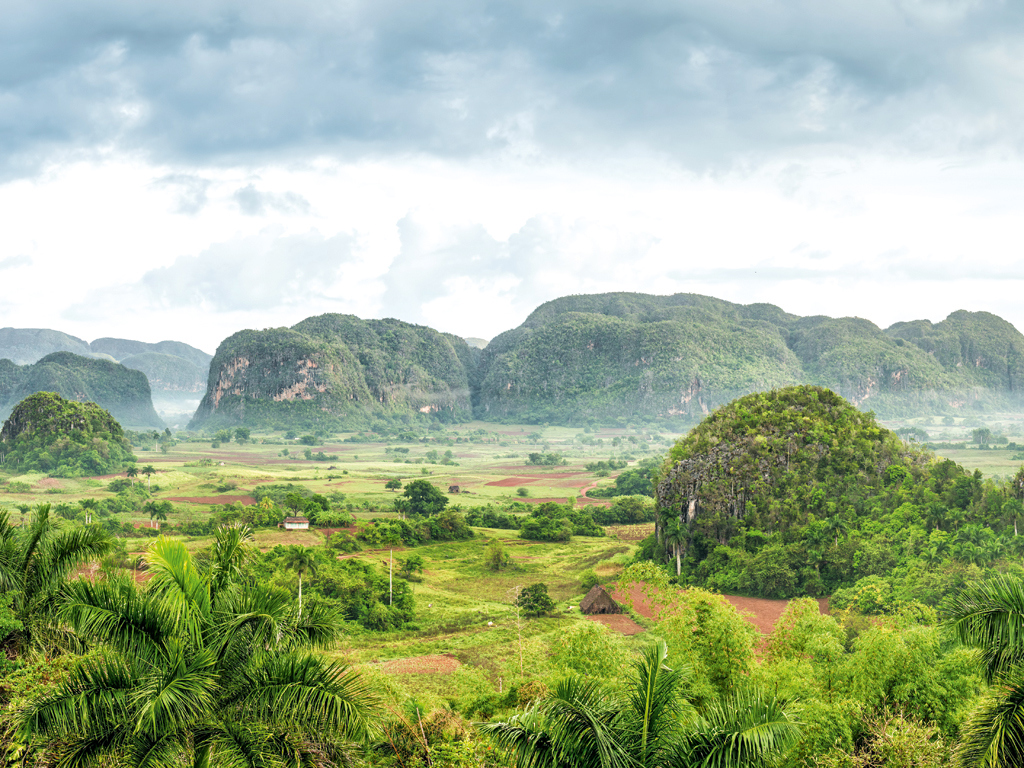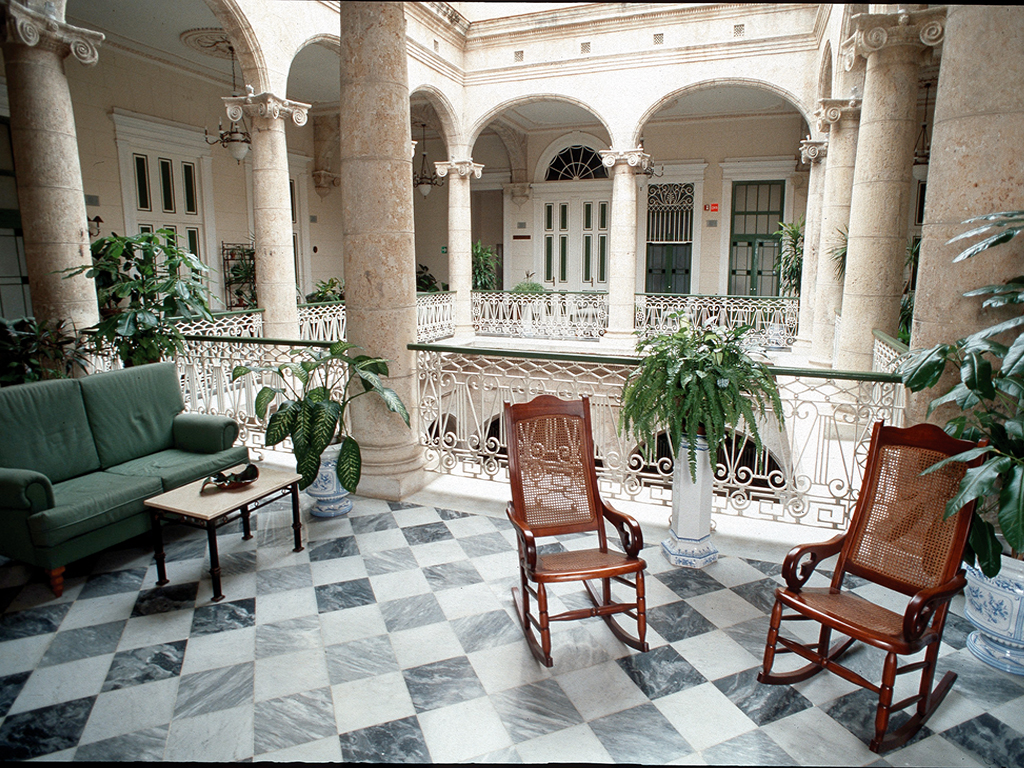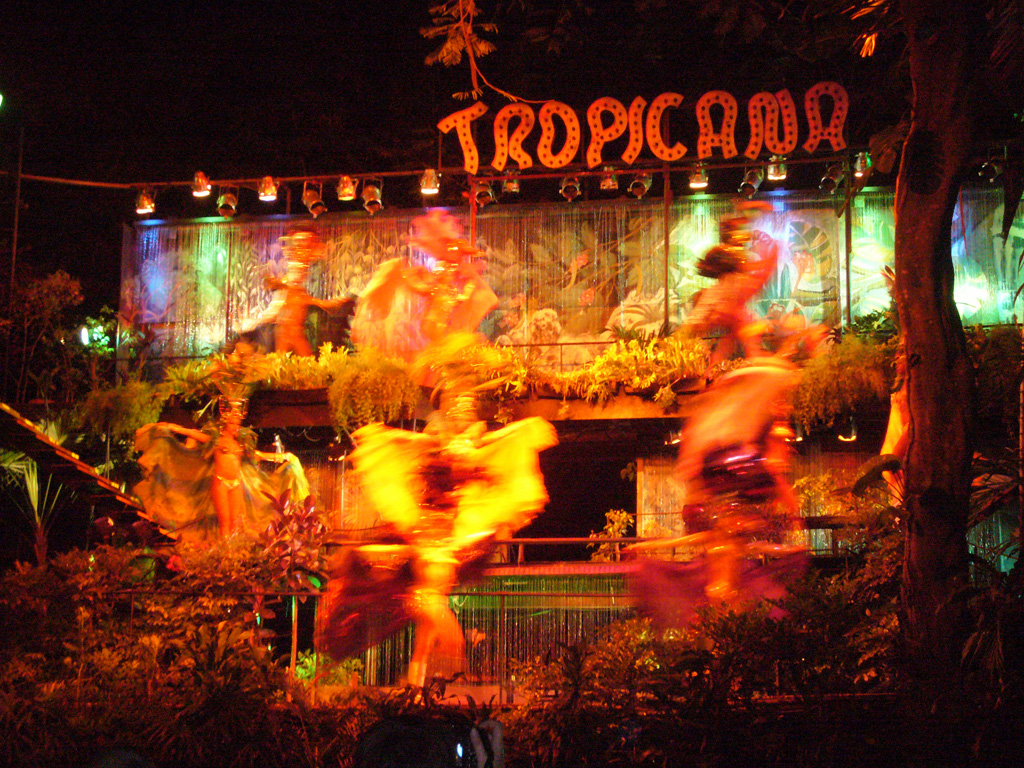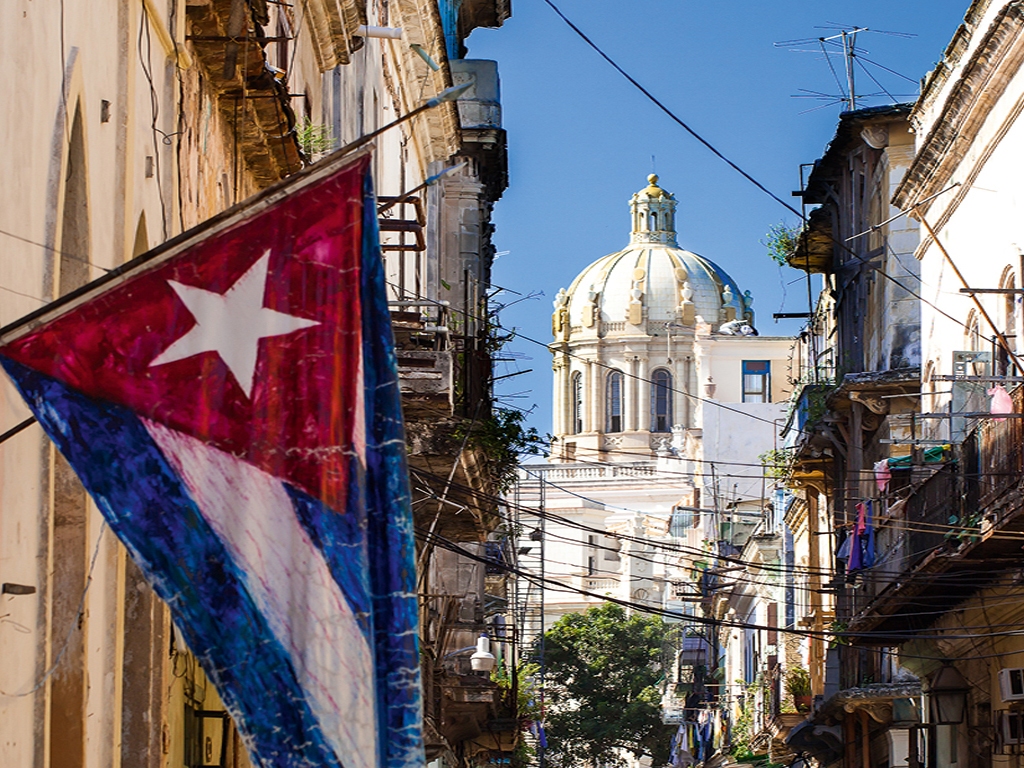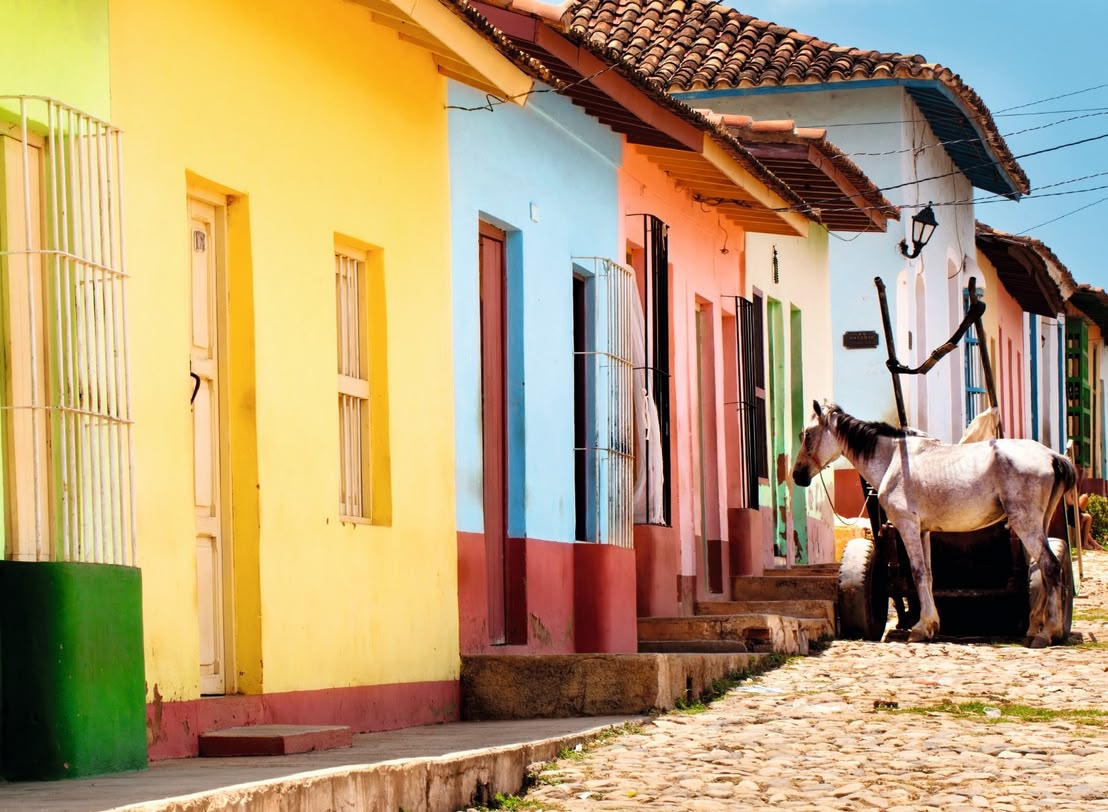Cuba travel guide
Cuba is not only the largest island in the Caribbean in terms of area, but also the one with the most inhabitants. The population is made up of the ancestors of the indigenous Indian population as well as Spanish and African immigrants.
The Caribbean island therefore offers an incredibly diverse culture. Music and dance are important components of the Cuban way of being. Well-known dances such as the Son, the Mambo, the Salsa, the Cha Cha Cha or the Rumba have their origins here. Besides music, literature is also very important. Literary enthusiasts meet regularly in the local houses of culture to read their works and poems to each other. One of the most famous writers is the American Ernest Hemingway, who lived in Cuba for more than 20 years.
The largest city in Cuba and in the entire Caribbean is Havana. A quarter of the population is concentrated in the capital. The next largest cities are Santiago de Cuba, Camagüey, Holguín and Guantánamo.
The Caribbean island therefore offers an incredibly diverse culture. Music and dance are important components of the Cuban way of being. Well-known dances such as the Son, the Mambo, the Salsa, the Cha Cha Cha or the Rumba have their origins here. Besides music, literature is also very important. Literary enthusiasts meet regularly in the local houses of culture to read their works and poems to each other. One of the most famous writers is the American Ernest Hemingway, who lived in Cuba for more than 20 years.
The largest city in Cuba and in the entire Caribbean is Havana. A quarter of the population is concentrated in the capital. The next largest cities are Santiago de Cuba, Camagüey, Holguín and Guantánamo.
Geography
Time zone
Climate and travel times
Climate chart (Havana)
| Jan | Feb | Mar | Apr | May | Jun | Jul | Aug | Sep | Oct | Nov | Dec | |
|---|---|---|---|---|---|---|---|---|---|---|---|---|
|
|
26° | 27° | 28° | 29° | 30° | 31° | 31° | 32° | 31° | 29° | 27° | 27° |
|
|
18° | 19° | 19° | 21° | 22° | 23° | 24° | 24° | 24° | 23° | 21° | 20° |
|
|
6h | 7h | 8h | 9h | 9h | 8h | 9h | 8h | 7h | 6h | 5h | 5h |
|
|
25° | 24° | 25° | 26° | 27° | 27° | 28° | 28° | 28° | 27° | 27° | 27° |
|
|
6 | 5 | 4 | 5 | 7 | 10 | 9 | 10 | 11 | 11 | 7 | 6 |
Entry requirements
For a longer stay, you will need a visa, which is also issued by the Cuban Embassy. An invitation may be required for this. The processing time can take several weeks, so we recommend taking care of this in advance.
Currency
There are two currencies in Cuba. The original Peso Cubano (CUP, symbol: Cub$) and the Peso Convertible (CUC, symbol: $). US dollars are no longer been accepted as a means of payment. Tourists pay with the peso convertible, which is divided into 100 centavos. There are notes in denominations of 1, 3, 5, 10, 50 and 100 pesos. There are also coins in 1, 5 and 10 centavos and 1 and 3 pesos.
Health care
The usual vaccinations such as tetanus, diphtheria and hepatitis A should be available. For a stay longer than four weeks, vaccinations for hepatitis B, rabies and typhoid are also recommended.
In Cuba, tap water is not suitable for drinking. Bottled drinking water is available in shops. Fruit and vegetables should also be peeled or cooked before consumption in order to avoid diarrhoeal diseases.
Packing checklist
Religion
Politics
Language and communication
Public transport
History
After Columbus discovered Cuba in 1492, the Spanish Crown conquered the island. Thousands of Indians died in wars with the Spaniards and due to the diseases brought by Europeans. The number of indigenous people dropped to about 5000. African slaves were therefore brought to the country to work on cattle ranches and in leather production.
In the 18th century, British troops occupied the island, bringing more forced labourers from Africa for the cultivation of sugar cane plantations. By 1820, Cuba was the largest sugar producer in the world.
Spain lost its dominance over Cuba in the war against the USA in 1898. Cuba gained its independence at the beginning of the 19th century, but was still subject to the USA military administration. The first president of the Republic of Cuba was Tomás Estrada Palma.
In 1940 Fulgencio Batista became president. The dictator obtained Cuba's complete independence from the USA. With an uprising, the revolutionary leader Fidel Castro took over the position of prime minister in 1959. A land and agrarian reform was introduced and private land ownership was thus nationalised. As a result, the USA imposed a trade embargo with Cuba. Despite significant aid from Russia, Cuba's economy was severaly damaged with the end of the Soviet Union.
Tourism became more and more important in Cuba. In 1998, Pope John Paul II visited the island. In 2008, President Fidel Castro, who had been in power since 1976, handed over his position to his brother Raúl Castro.
Festivals
Havana Cigar Festival: (February - March): Cigar lovers from all over the world make a pilgrimage to the unique "Festival del Habano" every year. Everything revolves around the enjoyment of the cigar: cigar novelties are presented, plantations and manufactories are visited and seminars are offered where visitors can practise rolling cigars.
Boleros de Oro: (June) The Boleros de Oro festival, created in 1986 by composer and musicologist José Loyola Fernández, is considered the most prestigious of the bolero demonstrations on this side of the Atlantic.
Havana Carnival: (July - August): The Caribbean Carnival is not to be missed: since 1573, this traditional spectacle of parades, colourful costumes, roaring street parties, wild dances and enchanting fireworks takes place in Havana.
International Ballet Festival: (October - November): Every two years, the "Gran Teatro de La Habana Alicia Alonso" hosts the Ballet Festival, which was founded in 1960 shortly after the Cuban Revolution. Today it is an integral part of the Cuban cultural scene. Dancers from all continents are represented here and present creative dances at a high level. On Youtube you can find recordings of the Ballet Nacional de Cuba.
International Film Festivalhttp://habanafilmfestival.com/: (December): For South America fans, the Havana Film Festival is absolutely worth seeing: every year, mainly South American films are presented here. During the festival, prizes are awarded to the best films.
Havana Carnival: (July - August): The Caribbean Carnival is not to be missed: since 1573, this traditional spectacle of parades, colourful costumes, roaring street parties, wild dances and enchanting fireworks takes place in Havana.
International Ballet Festival: (October - November): Every two years, the "Gran Teatro de La Habana Alicia Alonso" hosts the Ballet Festival, which was founded in 1960 shortly after the Cuban Revolution. Today it is an integral part of the Cuban cultural scene. Dancers from all continents are represented here and present creative dances at a high level. On Youtube you can find recordings of the Ballet Nacional de Cuba.
International Film Festivalhttp://habanafilmfestival.com/: (December): For South America fans, the Havana Film Festival is absolutely worth seeing: every year, mainly South American films are presented here. During the festival, prizes are awarded to the best films.
Holidays
1 May is Día de los Trabajadores (Workers' Day).
On 25, 26, 27 July Día de la Rebeldía Nacional (Anniversary of the Revolution) is celebrated. On 26 July 1953, Fidel Castro and an underground group stormed the Moncada Barracks in Santiago de Cuba and the Céspedes Barracks in Bayamo, kicking off the revolution.
10 October marks the Inicio de las Guerras por la Independencia (start of the War of Independence).
Food
Tourist mistakes
Lying "topless" on the beach is not appreciated by Cubans and should only be done on the beaches of the all-inclusive resorts.
Children are not allowed to beg in Cuba. However, many children like to hold out their hands when they see tourists. Avoid giving them money.
Say goodbye to the idea that the internet in Cuba works the same way as in most other countries. There is hardly any Wi-Fi in Cuba and to use it you need an internet card.
Advice & tips
Small dictionary
| English | Español |
|---|---|
| Hello! | ¡Hola! |
| Good morning! | ¡Buenos días! |
| Good day! | ¡Buenas tardes! |
| Welcome! | ¡Bienvenido/a! |
| How are you? | ¿Como estas? |
| Good, thank you! | ¡Bien, gracias! |
| And you? | ¿Y tu? |
| Thank you so much! | ¡(Muchas) gracias! |
| You are welcome! | ¡Con mucho gusto! |
| Good night!! | ¡Buenas noches! |
| See you later! | ¡Hasta más tarde! |
| Bye! | ¡Adios! |
| I am lost | Estoy perdida |
| Can I help you? | ¿Puedo ayudarte o necesitas ayuda? |
| Can you help me? | ¿Disculpe, puede ayudarme? |
| Where is the toilet/pharmacy? | ¿Donde esta el baño/la farmacia? |
| Do you speak English? | ¿Disculpe, usted habla (inglés)? |
| My name is … | Me llamo … |
Do you have a question or need some advice?
We are always ready to solve any doubts you might have!

